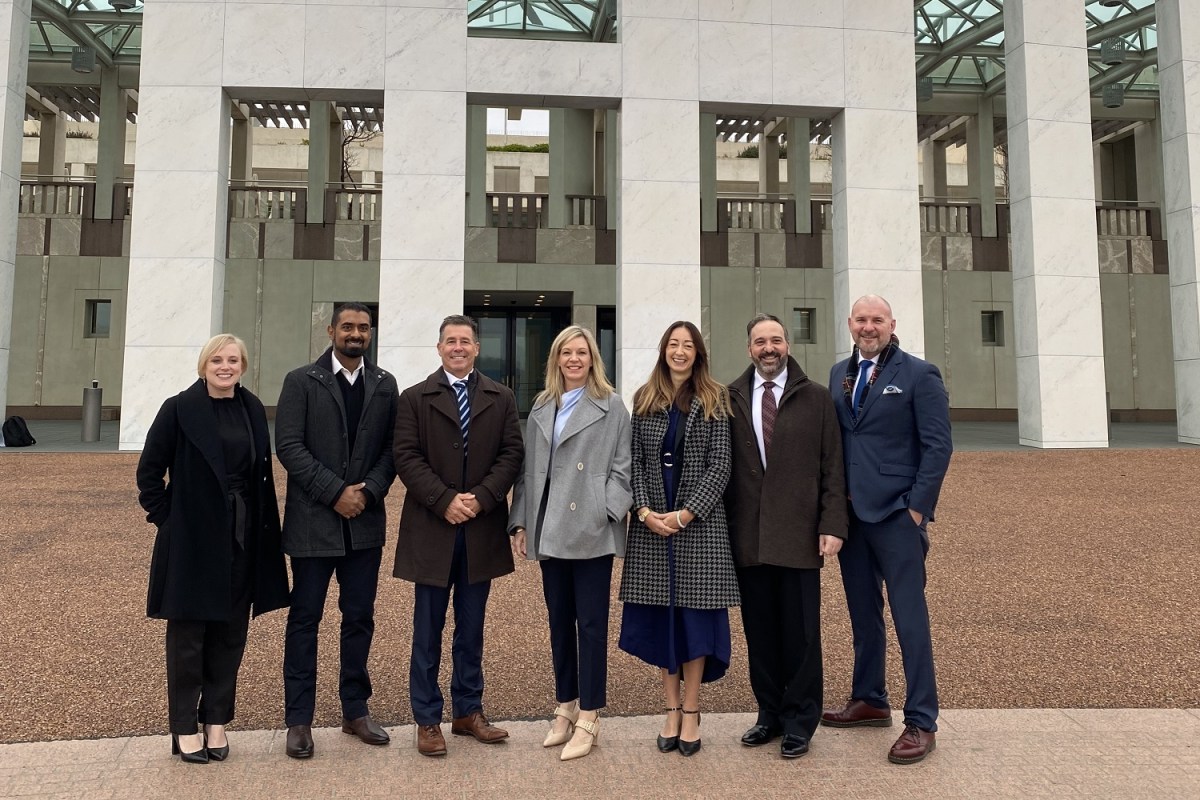The peak industry bodies for Australian spirits, Spirits & Cocktails Australia and the Australian Distillers Association have highlighted the huge potential for the country’s spirits manufacturing industry to the House of Representatives Standing Committee on Industry, Science and Resources in Canberra today.
The Inquiry into Food and Beverage Manufacturing heard from the two associations that without urgent intervention by the Federal Government Australia will miss out on the huge economic opportunity that Australia’s spirits manufacturing industry presents.
Australian Distillers Association Chief Executive Paul McLeay said the Australian distilling industry should be integral to the government’s Future Made in Australia policy.
“However, the Government’s outdated policy settings and inaction has placed Australian-made spirits at a significant competitive disadvantage in our home market and abroad,” he said.
“Just as previous governments recognised the potential of Australian wine, with the right policy settings and infrastructure, Australian spirits can realise a $1bn export opportunity by 2035.
“If we do not act now, Australian distillers will be outpaced by other emerging spirits markets in meeting growing consumer demand for premium products – and Australia will miss out on the economic windfall that could be ours.”
The Inquiry also heard from spirits producers representing both industry bodies.
Australian Distillers Association President and Managing Director of Bass & Flinders Distillery, Holly Klintworth, said: “We know that nothing tastes like Australia. Australian spirits celebrate flavour and unique native ingredients that are not found anywhere else globally. This provides Australia with a point of difference from other spirits-producing nations.
“That’s why our industry needs coordinated, targeted support to both succeed at home and take distinctive Australian spirits to the world.”
Spirits & Cocktails Australia director Nicole Lestal highlighted the imbalance in Australia’s current excise regime and said the Government must release this industry-slowing handbrake.
“While Australian spirits account for 20 per cent of alcohol consumption, it accounts for 50 per cent of alcohol taxes,” she told the Committee.
“This structural disadvantage impedes innovation and opportunities to re-invest in Australian spirits manufacturing.
“Our global spirits industry experience tells us that when governments act decisively and across multiple fronts to provide coordinated support, it incentivises investment to achieve scale and unlock further opportunities for economic value-add and innovation.”
Kylie McPherson, member, Spirits & Cocktails Australia and Vice President, Director of Public Affairs Brown-Forman Australia, highlighted to the Committee how a change in tax policy in the UK saw Brown-Forman invest heavily into that market.
“After the UK Government froze excise in 2015, Brown-Forman invested approximately $500m in acquiring three Scotch whisky distilleries,” McPherson said.
“Nine successive freezes in the UK have provided certainty to further invest in expanding these businesses, tripling exports and significantly enhancing their tourism offerings as a result, among other economic benefits. Unfortunately, the current conditions and the uncertainty borne of Australia’s excise regime – which is the third highest spirits tax in the world – are inhibitors for global companies like ours making such an investment in this market.”
Mark Hill, Treasurer, Spirits & Cocktails Australia and Managing Director, Suntory Global Spirits Oceania also spoke to the Committee about how global businesses view the Australian market.
“Suntory Oceania’s new $400m carbon neutral facility in Ipswich, Queensland, provides the Committee with a real time example of the positive impact that direct foreign investment can have on the Australian food and beverage manufacturing sector.
“However, there is little or no incentive for global spirit companies to invest in the expansion of the Australian spirits industry while our excise rates are so overwhelmingly uncompetitive with other countries like Japan, the United States, Ireland, Scotland and Mexico.”
Satya Sharma, Spirits & Cocktails Australia Director and CEO of Lark Distilling Co also told the Committee about the huge potential and opportunity there is for Australian spirits if the excise shackles are removed.
“New world whisky is currently on the rise in many corners of the world. Australia has an opportunity to grow our category into something of global significance synonymous with quality and innovation, following in the footsteps of Japanese and Scotch whisky, while contributing substantially to domestic employment and economic growth.”
The comments that McLeay made to the Inquiry about how previous governments saw the potential in Australian wine, with investment in that sector continuing, but is not extended to spirits was highlighted by David Vitale, the Vice President of Australian Distillers Association and Founder of Starward Australian Whisky.
He said: “My experience of living in the US for the last five years has shown that it is extremely difficult to build an export market for Australian spirits without the coordinated support that only Government can provide.
“When Starward shows up at prestigious international trade shows like ProWine, I blow my entire export marketing budget on a trestle table that gets lost in the acres of exhibitors, while Australian winemakers have pride of place in an elaborate pavilion, proudly showcasing their provenance.
“It’s unfortunate that when we ask Austrade for the same opportunities, we are informed that their support does not extend to spirits. The consumer demand is there, we just need Government to recognise the potential of our industry.”
The Spirits & Cocktails Australia and Australian Distillers Association submissions are available to download on the Inquiry website.

